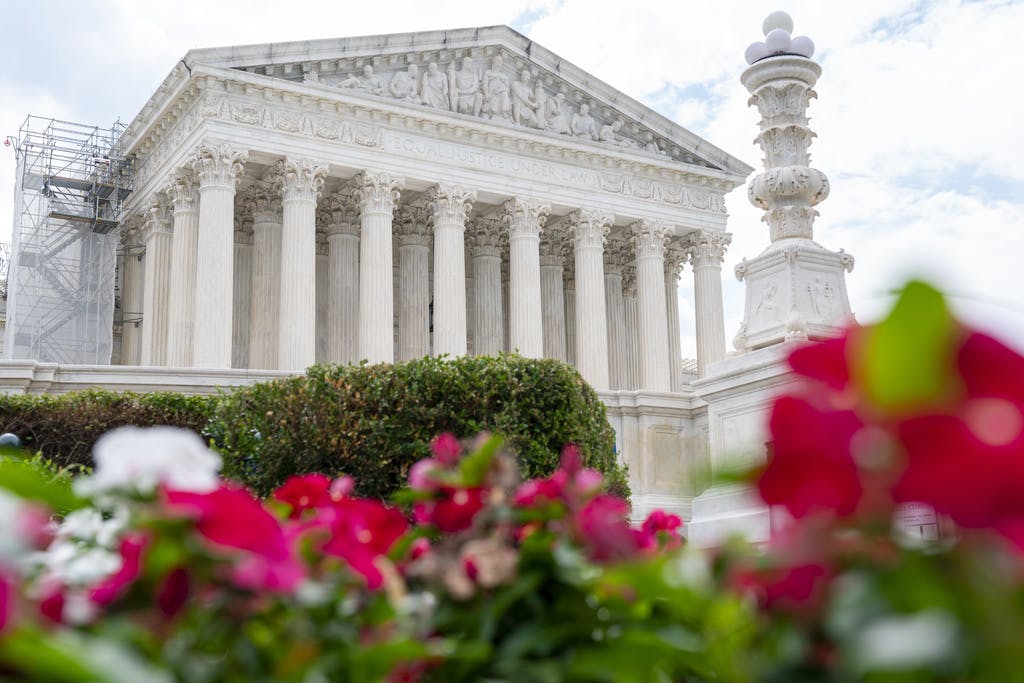Supreme Court Rebuffs New York’s Campaign To Narrow the First Amendment
It’s the case of the heroic nuns versus the opponents of religious free exercise.

Catholic nuns are racking up quite a winning streak at the Supreme Court. Today the Nine handed a victory to a group of Albany nuns, joined by other faith groups, who opposed a New York mandate forcing them to pay for employees’ abortions. The Albany nuns’ win echoes the high court victories scored by the Little Sisters of the Poor, who sought to minister to the elderly without following secular mandates on, say, birth control that affront their faith.
The vindication — for now — of the nuns in Albany extends the broader expansion of religious liberties by the Roberts court. In recent years, a series of rulings has strengthened the right of faith-based organizations and individuals to the “free exercise” of their religion, guaranteed by the First Amendment, while also scaling back discrimination by governments against religious people and groups.
The dispute in Albany centered on a New York State regulation that required the health plans of religious groups to cover their employees’ abortions. The state initially pledged to exempt employers, like the nuns and other faith-based social service providers, with religious objections to such coverage. Yet abortion-rights activists forced New York to narrow the exemption, a religious freedom advocacy group, the Becket Fund, reports.
Limiting the state’s exemption to “only religious groups that primarily teach religion and primarily serve and hire those who share their faith,” Becket says, ended up punishing groups, like the nuns, “because they serve all people, regardless of faith.” The short shrift for the religious groups was necessary, as New York State explains it in a high court filing, in order to insure “women’s full access to health care services” like abortions.
New York reasoned with a straight face that forcing the nuns to pay for abortions establishes “an appropriate balance” between the rights of religious groups to “the free exercise of religion” and their employees’ “interests” in “access to essential reproductive health care and equality in health care regardless of sex.” Yet the state’s idea of “balance” was off-kilter when viewed through the prism of the First Amendment, the Supreme Court concluded.
By sending the nuns’ case, captioned Diocese of Albany v. Harris, back to the lower courts, the Nine today are following through on the precedent set earlier this month in Catholic Charities Bureau v. Wisconsin. That unanimous decision, written by, in Justice Sonia Sotomayor, one of the stalwarts of the court’s liberal wing, insists that a Badger State religious charity was entitled to a tax exemption despite a contrary finding by the state’s high court.
The Wisconsin supreme court’s holding, akin to the unfairly narrow New York policy, was that the charity did not deserve the benefit “because they neither engage in proselytization nor serve only Catholics in their charitable work,” Justice Sotomayor reckoned. That, she added, “imposed a denominational preference by differentiating between religions based on theological lines.” So, she concluded, the Wisconsin law “cannot stand.”
After Justice Sotomayor’s opinion was issued, the writing was on the wall for New York’s policy vis-à-vis the Albany nuns. Rightly so, too, after the state sought “to browbeat nuns into paying for abortions for the great crime of serving all those in need,” Becket’s vice president, Eric Baxter, says. Both states’ policies attempted to treat religious liberty as a kind of second-class right — a form of discrimination that is not justifiable under the Constitution.

